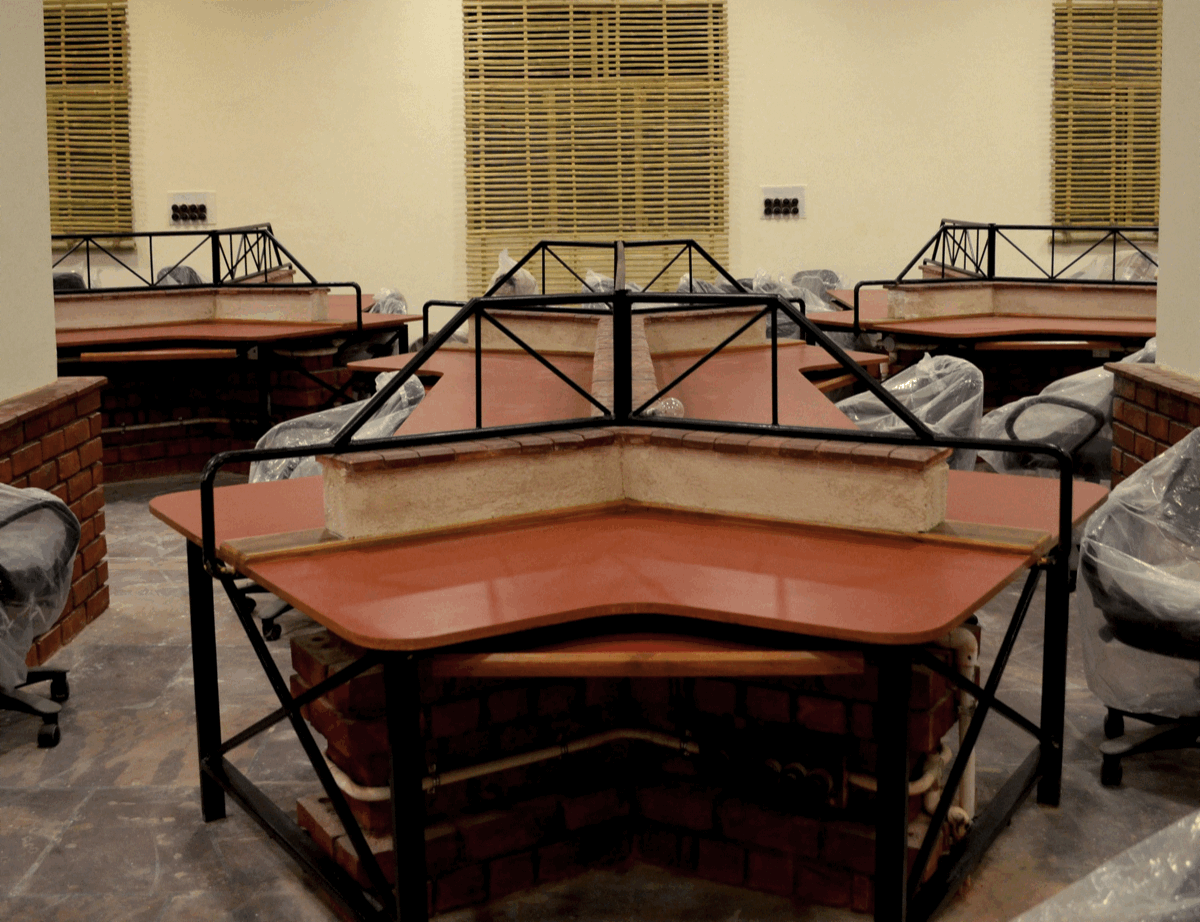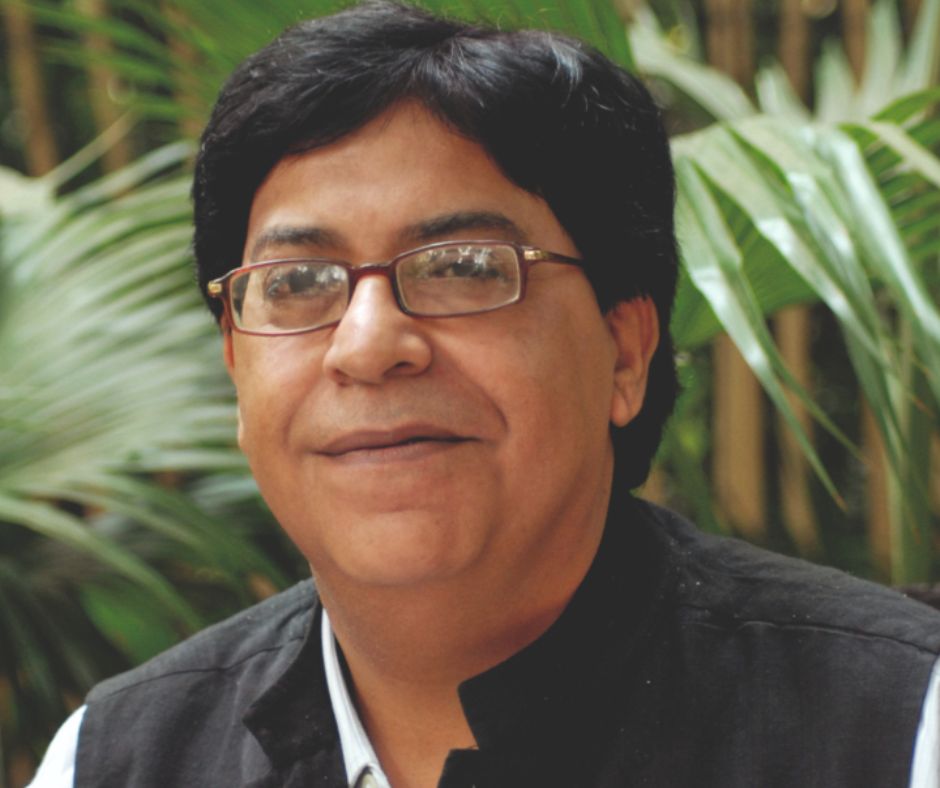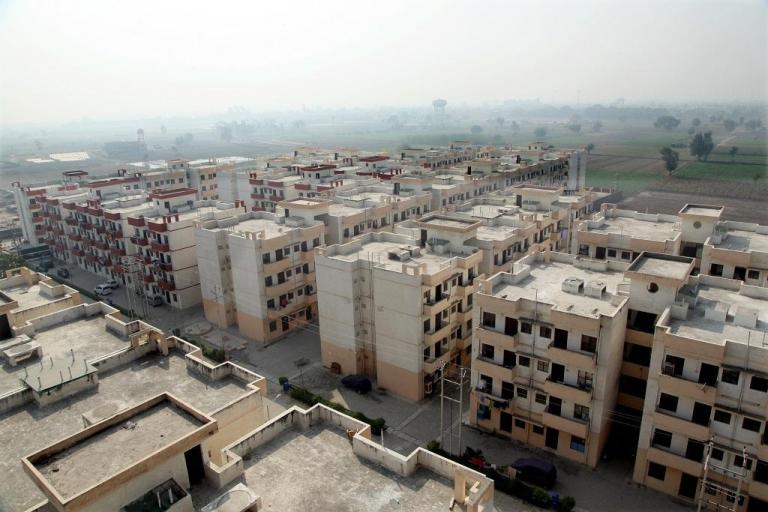
The project derives its name from the fact that it features an earthy material pallet while the space has to house a mid-size web development and design firm. The 4000sqft space features a reception, two conferences, cafeteria, an outdoor green court and a work hall. Careful use of materials provides earthiness and scalar complexity to the space thus inverting the modern and minimalist style that is conventionally conjoined with computers and technology. Also, the carbon footprint is taken into account as most of the materials are re-used from the existing pallet while some are reclaimed from nearby re-furbishing yards. Furthermore, the front and side facades of the building are intended to be converted into vertical greens thus reducing the heat gains, and providing veggies for its inhabitants.
Practice – Chaukor Studio Being a fundamental alphabet of the spatial language of architecture, CHAUKOR signifies a planar frame that encapsulates space. Chaukor founded by architects Tejeshwi Bansal and Nilesh Bansal is an architectural practice that features an integrated workshop where architects, artisans and skilled craftsmen work along a common design philosophy.









